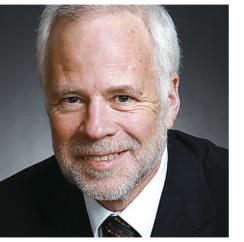The crisis in Cyprus, which drew widespread criticism of European economic management, has raised more questions about the euro’s future. Does the fact that Cyprus created exchange controls mean that at least two kinds of euro already exist? Could parallel European currencies be a model for other countries?
In April the Institute of European Studies at the University of California, Berkeley, held a conference called “The Future of the Euro: Lessons from History.” It considered such questions as whether political union is necessary for the single currency to work properly and how quickly the Continent should adopt unified banking standards. Not surprisingly, the academics who attended were as divided on a solution as the Europeans themselves.
Benjamin Cohen, a professor of international political economy at the University of California, Santa Barbara, voiced what was probably the consensus. “The euro will never fail for fear of what follows, and it will never succeed because of the erosion of the conditions necessary for its healthy survival,” Cohen said. “The euro will not have a sudden crisis like a heart attack but a medical condition like rheumatoid arthritis with occasional flare-ups.”
Cohen noted that in the past political union hasn’t been necessary for a monetary union to succeed. He cited the Scandinavian Monetary Union, which brought together the Danish, Norwegian and Swedish currencies and held from 1876 to 1914. A less successful example is the Latin Monetary Union, founded in 1865, which united the currencies of Belgium, France, Italy and Switzerland, and later those of Spain and Greece; it officially lasted until 1923. In the end, this union foundered because some countries cut back on the silver and gold in their coins. Greece was one of the main culprits in that union’s collapse.

| |
| Berkeley professor of economics and political science Barry Eichengreen |
Several other conference speakers suggested that the solitary European currency is unworkable in its current form. The only argument was about what should follow. Princeton University history professor Harold James, whose latest book is titled Making the European Monetary Union, recommended “parallel currencies” — official European currencies that float freely against the euro. “You need a mechanism such as a parallel currency that makes leaving less of a traumatic episode so that you could envisage a country temporarily going out and coming back again,” James said. Such a parallel currency could give newcomers such as Poland and Hungary an interim step before joining the euro.
But host Barry Eichengreen, a Berkeley professor of economics and political science, rejected the idea of two currencies for a struggling nation like Greece. “The bad money would drive out the good money,” said Eichengreen, author of a 2011 book on the international monetary system, Exorbitant Privilege. “As soon as people saw a new drachma being introduced in Greece, they’d get every euro in their name out of the country.”
Eichengreen singled out the handling of the Cyprus crisis, which he called a fiasco. When Northern European countries absolved themselves of responsibility, they damaged the reputation of European crisis managers, he said: “Incompetence is very corrosive, and what happened in Cyprus cast a pall over the euro zone.” Eichengreen cited the doubts, now widespread in Europe, about deposit insurance and the seniority of claims.
Perhaps the most extreme solution came from a German, Hans-Joachim Voth, an economics professor at Pompeu Fabra University, in Barcelona, who called for his country to exit the euro as soon as possible. “If the euro is still in circulation in ten to 20 years,” Voth warned, “we will have condemned an entire generation of people in Southern Europe to unemployment and a life wasted living with their parents in the basement.”
He pointed out that four years of austerity in Spain have pushed unemployment up to 27 percent but reduced unit labor costs by just 7 percent. Spain isn’t really any more competitive, but violence is now a threat there and in many other European countries suffering from austerity, Voth said. “We’re undermining all the efforts of the last 50 years to make the European Union a more friendly place.”
He proposed that Germany withdraw from the euro, along with the Netherlands and Austria. Noting that the main objection to leaving was the potential effect on German banks, Voth said they were being recapitalized in any case, so a complete withdrawal wouldn’t compromise that end.
In a nod to history, the Berkeley conference chose as its emblem the deutsche gold mark, emblazoned with the head of Kaiser Wilhelm. That currency became legal tender throughout Germany in 1873. Its reign ended with the outbreak of World War I, when it was replaced by paper marks, which led to runaway inflation, a disaster that haunts Germany even today.






